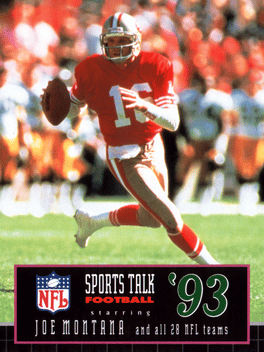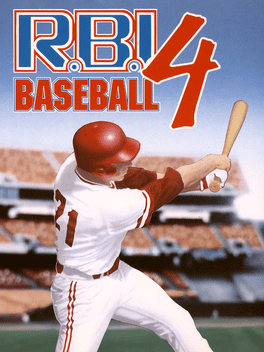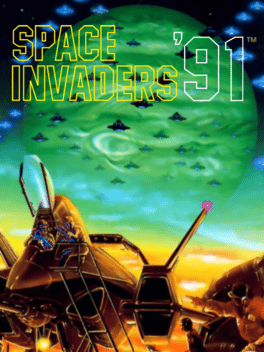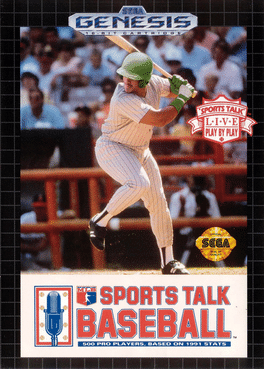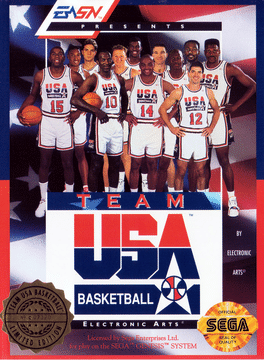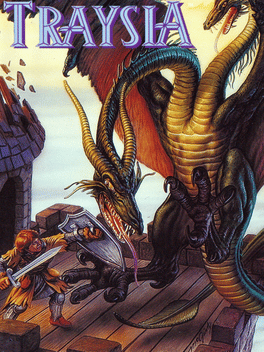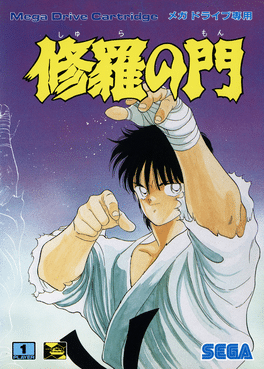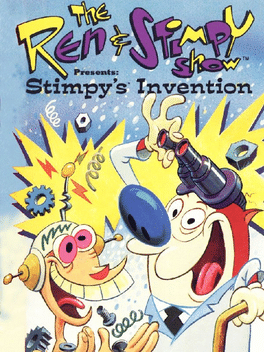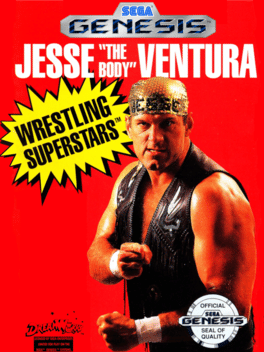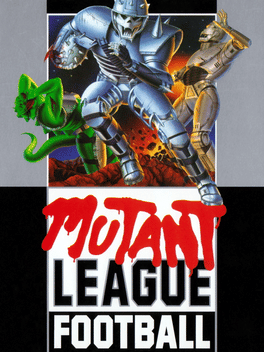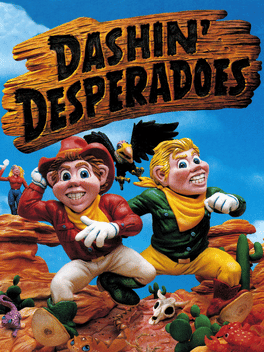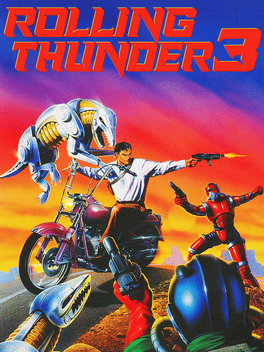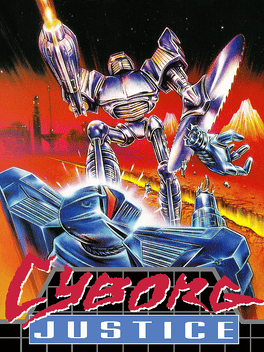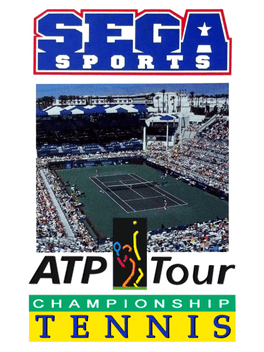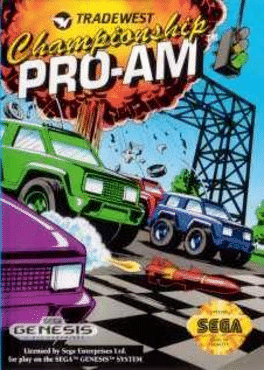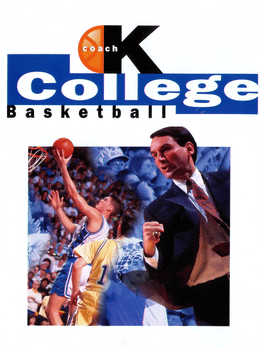Most Popular Sega Mega Drive Genesis Games - Page 37
-
NFL Sports Talk Football '93
1992
Players may choose to play an exhibition game, or compete in the league (16 games, then the playoffs and Super Bowl). -
R.B.I. Baseball 4
1993
-
Space Invaders '91
1991
Space Invaders '91
1991
Space Invaders '91 is a port of the the coin-op Space Invaders '91, just like Super Space Invaders for other platforms, but still different from those. This version differs from Super Space Invaders in that there are no cutscenes, there is only one mode of play as opposed to SSI's two, and there is no stage select. -
Sports Talk Baseball
1992
Sports Talk Baseball
1992
Players can play either exhibition, regular season, all-star, or playoff games. The game also features authentic Major League Baseball rosters for the 1991 season. Gameplay commonly features double and triple plays, and only the fastest runners in the game are capable of stealing bases. It was one of the first video games to feature individual hitting abilities for each pitcher. Classic match-ups include Texas' Nolan Ryan versus Oakland's lineup with such all-stars as Jose Canseco, Rickey Henderson, Dave Henderson, and Mark McGwire. -
Team USA Basketball
1992
Team USA Basketball
1992
The game could be played in various ways: players could play against each other, or against the computer. Games against the computer were divided into two levels, "exhibition" or "tournament". Players could pick from one of the countries around the world to represent in the Olympics: USA, Yugoslavia, Angola, Australia, Canada, China, the CIS, Croatia, France, Italy, Lithuania, Slovenia, Netherlands, Spain. -
Traysia
1992
Traysia
1992
In Traysia the player controls a young man named Roy, who lives in the town Johanna. All his life Roy has been dreaming about leaving the town and going to explore faraway lands. Now, finally, his chance has come. His uncle, a travelling merchant, is going on a journey, and Roy decides to leave with him. His girlfriend Traysia gives him a pendant, to remind him of her... will Roy be able to escape from all the dangers that await him on his long journey and to see Traysia again? -
Shura no Mon
1992
Shura no Mon
1992
Legends tell of an invincible martial art known as Mutsu Enmei-Ryu, an unarmed style that allows the user to defeat any number of armed opponents using incredible speed and strength. This is the story of three generations of those who bear the name Mutsu, and their encounters and battles with the strongest fighters of their era. The story is about Mutsu Tsukumo, a young and normal looking youth who challenges great foes to prove that his style of fighting is the best in the world. His Ryuha, or fighting style is called Mutsu Enmei Ryu. A style that is said to have never lost in its 1000 year history. Tsukumo not yet a perfect fighter also increases his strength as the story progresses. -
The Ren & Stimpy Show Presents: Stimpy's Invention
1993
In one player the player controls either Ren or Stimpy and the computer controls the other character who will simply follow; however, the player can swap the character they control at almost any time during game play. In two player, players controls one character each, both within the same screen (no split screen). In one or two player several special moves can be performed by both characters standing close and a player pressing certain buttons simultaneously, the move differs depending on which buttons are pressed and whether the player is controlling Ren or Stimpy. The ability of swapping characters during game play in one player means the player can perform all the special moves not just those available for one character. The moves include: Stimpy throwing Ren to cover long distance such as over a hole. -
Jesse 'The Body' Ventura Wrestling Superstars
Take on Jesse "The Body", one of the largest and meanest wrestling superstars ever to crust heads in a ring! Play alone or with a friend in a champion match, an exhibition or a no-holds-barred tag team match. Jump in the ring as a wrestling superstar! Jesse "The Body" Ventura Wrestling Superstars is an unreleased wrestling game set to be published by DreamWorks for the Sega Mega Drive. A prototype was leaked onto the internet on March 3rd, 2016. -
Mutant League Football
1993
Anything can happen when the most awesome mutants battle to prove who rules the galactic gridiron. 16 vicious teams of aliens, robots, trolls, skeletons and super-humans. Set the "Death Index" from Rough, all the way up to Annihilation. Call wild plays or nasty audibles - when the QB throws a bomb, it's the real thing! Watch instant replays to see where the body parts land. Throw TNT at the halftime marching band. -
WWF Raw: Wrestling's Rudest and Roughest!
1995
WWF Raw is a professional wrestling game featuring up to twelve superstars (ten in the GameGear, eight in the GameBoy version) from the World Wrestling Federation: Bret "Hit Man" Hart, Bam Bam Bigelow, 1-2-3 Kid, Diesel, Doink, Lex Luger, Luna Vachon, Owen Hart, Razor Ramon, Shawn Michaels, Undertaker, and Yokozuna. In this game, player-controlled wrestlers attempt to pin the opponents to the mat by reducing their power meter until they can fight no more. There is a large number of moves to perform, including turnbuckle maneuvers and "illegal" acts such as hitting the opponent with a metal folding chair. This game supports up to four simultaneous players, and has the following modes: One-on-One, Tag Team, Bedlam, Survivor Series, Royal Rumble, Raw Endurance Match, and Rematch. -
Dashin' Desperadoes
1993
Dashin' Desperadoes
1993
Will and Rick were like two peas in a pod or more accurately, two cowpokes in a corral. In other words, these two cowboys were best of friends and nothing could tear them apart that is, until Jenny came to town. Since her arrival, the two best friends have become bitter rivals, each vying for her attention and affection. When Jenny's father decides to send her on a trip around the world, Will and Rick decide to race each other to see which one of them will accompany her. Through deserts, icebergs, shark-infested waters, and even ancient ruins these two go head-to-head in the wackiest race you've ever seen. In split-screen action, you and your opponent (either the computer or a friend) will have to use fancy footwork and a few tricks to be the first to the finish line and win Jenny's heart. -
Triple Play 96
1995
Triple Play 96
1995
Triple Play 96 is one of the earliest entries in EA's Triple Play series that featured a full MLB and MLBPA license with many of the top players of the 1995 season along with authentic stadiums from all 28 MLB teams along with 2,500 frames of animation to give the game a more realistic feel. Many of the standard options are present such as exhibition, season, playoffs, etc. along with a battery back-up that can keep extensive track on 25 different stat categories and has 12 unique pitches that can be chosen during the game. Players can also create their own baseball player and use them in the game or go against four friends. -
Rolling Thunder 3
1993
Rolling Thunder 3
1993
The events in the third game in the series are synchronous with RT2. At the end of the twentieth century, satellites around the globe are being shot down, disrupting communications. Secret agency Rolling Thunder discovers the organization behind the terror: Geldra. While agents Leila and Albatross are fighting the leader Gimdo (RT2), agent Jay is instructed to bring down Dread, the second-in-command. -
Beast Wrestler
1991
Beast Wrestler
1991
War of the Manmade Monsters! Life Science industries of the future have created the world's greatest sports warriors. Averaging 25 feet tall and weighing several tons each, these gigantic wrestlers grapple for the ultimate championship! Control your own titanic beast and master the various deathblow techniques. Use prize money to beef up your giant or enroll him in battle training events. Work with a Life Science team to create the most powerful fighter ever built by man! -Choose from a variety of bizarre and mighty Super Beasts! -Defeat the domestic champion to take on World-ranked players. -1 or 2 player earth-shaking, blockbusting action! -
Cyborg Justice
1993
Cyborg Justice
1993
You are a member of the Galatic Unity Agency on routine patrol in deep space when your patrol ship is damaged after accidently passing through a meteor storm and starts to lose control, smashing into a nearby planet and blacking out. The next thing you remember you are rummaging through scrap metal and welding together steel to make parts for weapons. You have become a cyborg slave in a munitions factory for the Cydrek Federation, a twisted machine with a human brain, unable to comprehend your situation, clouded by cybernetic programming until one day your human side finally starts to break through. You remember everything and realize that the Cydrek Federation is building an army to take on the G.U.A. and you must stop it. You must take on the entire Federation using your new cybernetic body and stop them from taking over the universe. -
Beast Ball
2011
Beast Ball
2011
Do you like action but reckon that chainsaw massacres are for grannies' tea parties? If you do then Brutal Sports Football is for you, league, knockout or unfriendly tournaments. Football with a new set of rules - No Rules! 1 or 2 Player Game 11 Different Teams Head To Head, All Out Combat Masses of Pick Ups Laughs, Blood This is an All Action crunch 'em, stamp 'em, no holds barred game where heads roll and where injury time means just that. -
ATP Tour Championship Tennis
1994
There are three game modes: Exhibition match, Exhibition Tournament (where the player competes in a 32-player tournament), ATP Senior Tour Event (where the player chooses one of the retired players and competes in a 8-player tournament) and the ATP Tour, where it's possible to create a player and develop his skills by winning (or simply doing well) on tournaments, with one extra point on each round won. Gameplay uses a simple 3-button layout, where the A button lobs the ball, B performs a controlled passing shot and C allows the fastest top spin shots, with the directional pad affecting the direction and depth of the shot. -
Championship Pro-Am
1992
Championship Pro-Am
1992
Guide your radio controlled car to victory in this racing game. You have to beat your 3 opponents on 32 tracks while avoiding obstacles like water and oil puddles and collecting bonus items like better engines and tires. You can also collect a variety of weapons to blast your opponents out of the way. The Genesis version is basically the same game as the NES version with a few minor changes such as having 5 opponents instead of 3, spelling out CHAMPION instead of NINTENDO, and having enhanced graphics. -
Coach K College Basketball
1995
There are three game modes: Season, Tournament (with three save slots for both) and Exhibition, and options follow the standard set from the NBA Live series. Gameplay also remains unchanged, with the typical three basic actions (fast running/steal, pass and shoot/block for A, B and C buttons) and the ability to call moves on the fly by pressing one of the buttons along Start (three or six moves can be set, depending on the joypad used).
